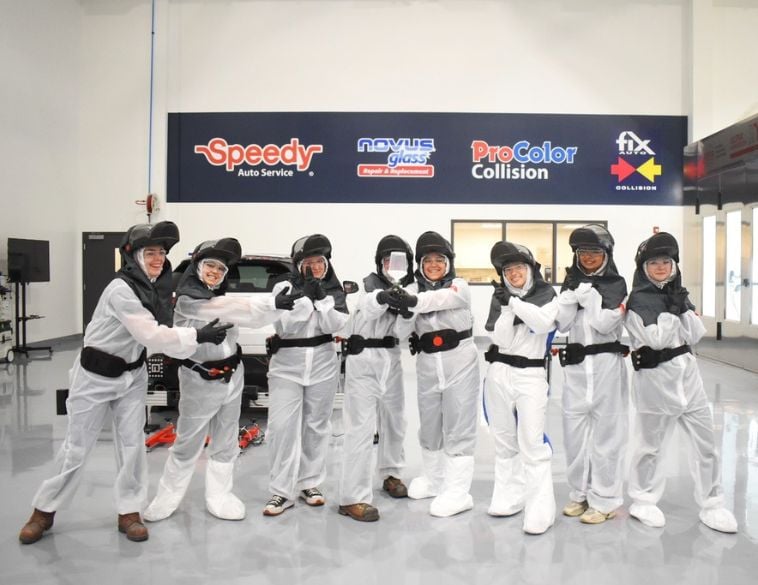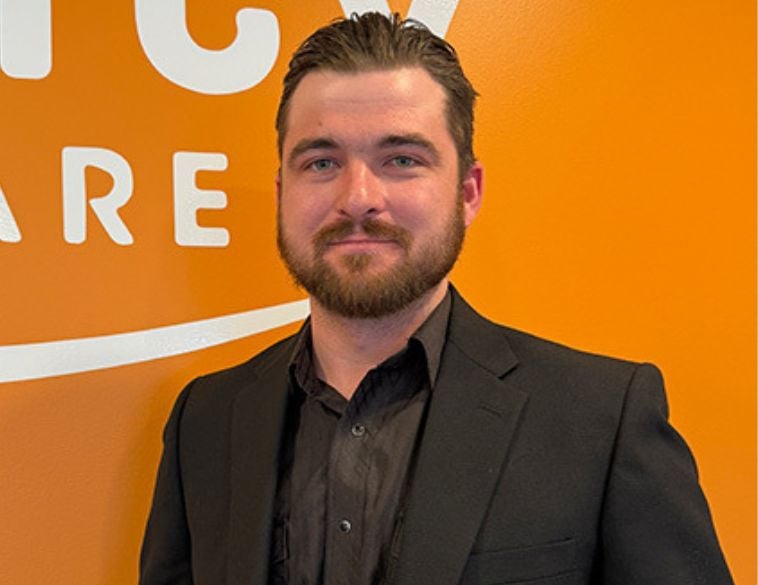Part 2: More collision repairers share their COVID-19 experiences
There’s no question, that since the middle of March, the novel coronavirus and resulting COVID-19 pandemic have impacted Canada’s economy and Canadian society to such an extent that things will likely never be the same again.
For the automotive sector and collision repairers, provincial wide lockdowns and the need to enact safety protocols to prevent the spread of the virus through community transmission have severely altered business practices. To help understand just how things have changed and the effects of collision repairers operating in different communities, Collision Management decided to contact shops across the country to share their own experiences in a special two- part series. Following on from last week we bring you some more tales of operators as they continue to conduct daily business amid the COVID-19 crisis.
Shop access
At CSN Morinville in Morinville, Alta—a community located approximately 34 km north of Edmonton, Owner/General Manager Steve Hammond says that probably the biggest impact of COVID-19 has been access to the shop itself. “We really took precautions to minimize the number of people going into the building,” says Hammond. This means that it’s strictly staff that work there, so no clients, vendors or suppliers.
Parts and supplies are delivered to the back door of the shop and once they are in place, the delivery person notifies the team at CSN Morinville and they are collected once the delivery driver leaves.
Hammond says that one thing that has really helped during COVID-19 is the glass waiting room. “This has been a big advantage for us in that we can essentially use it as a triage area. Customers come in and we make eye contact with them, greet them and even have a conversation, all from behind a set of glass windows.”
A clipboard and a pen are left out for customers in the waiting area so they can still sign and authorize work orders or invoices. Customers are also encouraged to drop off and collect keys, either for their own vehicle or a rental car if they need to. Hammond says that once each customer leaves the waiting area, it is completely disinfected, ready for the next client.
Like many collision repairers across the country, Hammond and his team are currently seeing fewer claims being processed and fewer estimates required, as a result of lockdowns and stay at home orders.
“Before the pandemic,” he says, “most of our work would be on drivable vehicles with 15-20 hours work required. Now,” he says, “we’re actually seeing more customer-pay jobs and generally smaller repairs. Hammond says that the interesting thing is that the work the shop is currently receiving can be defined in two categories—major repairs on non-drivable vehicles, or small touch ups, with essentially nothing in between.
Hammond says that the COVID-19 pandemic has also had a significant impact on the shop’s schedule of work. “It changed very quickly,” he says. “We went from a full week of work to almost nothing the next.”
As a result, the team at CSN Morinville decided to get creative. One way was to leverage social media to reach out to the shop’s customers explaining the range of contactless services on offer. Another was adopting photo-based estimating.
We realized we needed to make mobile estimating and imaging an option so we could go to the customer’s vehicle at a time when they know we will be there.
— Steve Hammond, Owner/General Manager, CSN Morinville
The exterior and interior of the vehicle are carefully documented and examined, though taking safety precautions, staff are required to wear gloves to ensure protection when opening the door and accessing the interior. In cases where a vehicle isn’t drivable, the shop will coordinate a pickup or deliver service with the customer, as long as they are comfortable with it.
Mobile estimates
Hammond says that in order to maximize efficiency during COVID-19, the shop has set up a mobile office to process estimates which can be deployed to the customer’s residence or place of business if needed. “We have a Wi-Fi printer, camera and gloves to make an estimate and provide a work order to be signed by the customer, so I don’t have to email my CSR or go back to my office to finalize the paperwork for them,” says Hammond. He notes that the whole process from providing an estimate, to printing a work order, and having the customer sign it can take as little as 15 minutes.
Although Hammond says he expects business to be fairly slow in the coming weeks due to claims volume projections and that it will likely be some time before business will return to pre COVID-19 levels, he urges shops to use the time to hone business practices and operational procedures. “A lot of repairers like us are learning how to run a lean version of our own business,” he says.
“Payment of invoices electronically, e-transfers, and pick up/drop off are all examples of services that may stick. If we can prove that we can do these things that make customers lives easier because we need the work, why wouldn’t we continue to do it after this whole thing is over?”
At Fix Auto Fredericton in Fredericton, N.B., General Manager Corey Etheridge says that while the province has experienced among the lowest rate of COVID-19 cases in Canada, businesses are still taking the necessary precautions.
While the front reception area at Fix Auto Fredericton is still open, only one customer at a time is allowed in and even then, must stand at least 2 m (6-ft) from the desk. There’s also been a plexiglass partition installed to shield the customer and the receptionist. Most of the correspondence between the shop and its customers is now done via email, text or on the phone.
Like CSN Morinville on the other side of the country, Etheridge and his team had adopted photo-based estimating to limit person to person contact. “In many cases we now ask customers to send us in photos are use the Fix Auto app,” says Etheridge.
Although he’s quick to acknowledge that photo-based estimating isn’t as effective as inspecting the vehicle up close and in-person, in most cases, when cars arrive at the shop and the team examines them, there hasn’t been a lot of extra damage discovered.
More truck repairs
While the shop has seen a decline in claims due to provincial stay-at-home orders, Etheridge says there is still work going on and Fix Auto Fredericton is doing its utmost best to help those customers that need repairs performed, such as frontline workers and those delivering essential supplies. “We’ve also taken on more heavier vehicle type repairs, including trucks,” he says.
In the bays, technicians are able to maintain social distancing and as a precaution the entire team wear gloves when handling customer vehicles and masks where required. Each vehicle is disinfected before it comes in for repairs on high touch areas including the door handles, steering wheel and centre stack and then cleaned once again before it leaves the shop.
Parts deliveries are also left outside the shop and are then collected by the parts manager, who wears gloves and a mask and makes sure any parts that arrive are cleaned before being placed on the shop floor for the technicians to handle.
Etheridge says that so far; the process put in place working well as the team navigates through COVID-19 though he does say, that some of these new precautions are likely to remain once things start to return to normality.
“We are definitely going to keep some procedures in place as there are still a lot of parts and supplies coming from out of the province and even out of the country,” he says. “We all need to continue doing our part until a vaccine becomes available, so that means following social distancing measures and remaining vigilant.”
Continued operations
At Simplicity Car Care Watford, in Watford, Ont. a small community located approximately 49 km east of Sarnia, Office Manager Chantal Cox says that the business has continued to remain open even while a number of rival shops in the area have closed their doors as a result of the COVID-19 pandemic.
Cox and her husband Kevin have owned and operated the business since 2006 (though it has been serving the Watford community since 1977).
She says the business challenges for many larger shops, can be overhead, especially as many have had to deal with significantly reduced business as a result of provincial-wide lockdowns.
At Simplicity Car Care Watford, the COVID-19 situation has changed the nature and type of work at the shop. “We still have our full team here,” says Cox, though work has tended to shift to repairs that are needed, especially in the case of frontline workers. “If somebody has a dented fender they’re looking to get fixed, they are holding off on those kinds of repairs.”
Although there are times now when the shop isn’t consumed by the sound of sanders, air guns, spray booths and other equipment, quieter periods have allowed the team to really focus on business practices and fine tune measures introduced as a result of the pandemic.
Although Simplicity Car Care Watford has long emphasized customer service as a top priority, Chantal Cox says the way in which it has been delivered over the last several weeks has changed. “Our reputation has really been built on customer service,” she says, “but now we’re talking a lot more with our customers on the phone—explaining as much as we can because we need to enforce social distancing.”
To make the process of repairing each vehicle as seamless as possible, Cox says the shop requests customers to remove as many items as possible from the vehicle before it comes in for work and also so it can be properly detailed before being returned to the client.
Each vehicle is sanitized before it comes in and staff wear gloves each time a vehicle has to be moved around, whether it’s from outside to inside, or around the shop.
Remotely as possible
And while the front office is still staffed, customers are encouraged to work with the team on a remote basis as much as possible. “If a customer needs to come in for signing a rental agreement or authorizing a repair we can do it,” says Cox, “and we have social distancing measures in place, but we try and encourage them to use a printer at home and send us in photos of the vehicle for estimates.”
Cox says that the situation can be a bit challenging a times, since she feels doing things remotely has reduced one of the key aspects in building great customer service, that one-on-one interaction. “We warranty the repairs we do, and we used to give a customer a complete package when they collected the vehicle. Now, doing it digitally, it’s a very different experience.”
When it comes to estimates and a customer arrives at the shop in their vehicle, the Simplicity Car Care Watford team asks them to remain inside while staff grab the necessary information in order to maintain a contactless process. Even getting customers into rental or loaner vehicles also requires getting more information up front, including insurance, drivers’ licence and claim information.
And when it comes to estimates and paperwork, Cox says customers can either have the documents sent digitally, or if they really want one, a paper copy can be printed off.
She says that even though COVID-19 has forced collision repairers to change business practices, some fundamentals remain the same. “For us it has and always will be about customer service. It is all about our customers and the experience they receive here.”
Cox notes that even amid the pandemic, it’s about ensuring that not only do Simplicity Car Care Watford’s customers feel safe, they’re also continually assured that they’re getting the best possible collision repair service anywhere—period.



